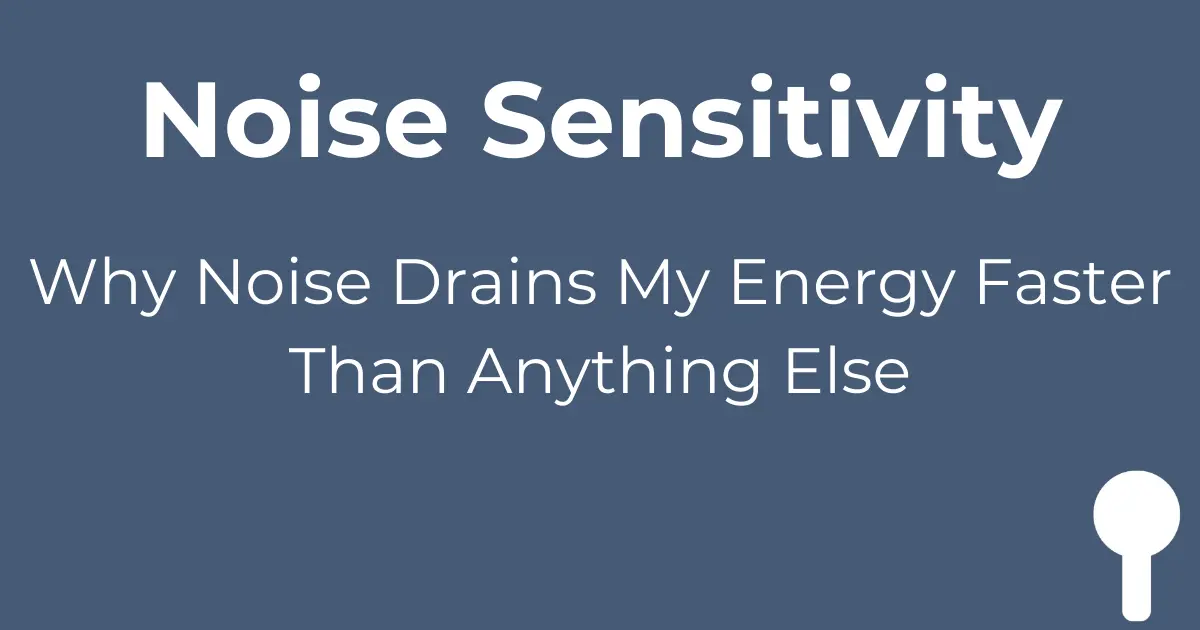
Why Noise Destroys My Energy Faster Than Anything Else
People talking loudly. Loud alarms. Totes slamming on the ground.
This is my warehouse job. 10 hours a day, Friday through Sunday.
By the end of my shift: All energy gone. Physically and mentally exhausted. I keep my noise-canceling headphones on even after my shift ends because the sensory overload doesn't stop when I clock out.
Noise Protection Isn't Optional
I've never worked a shift without noise protection. Not once.
It's not only required by my employer—it's absolutely unbearable without it. Meltdowns are guaranteed within a few hours of my shift starting if I don't have protection.
I use:
- Earplugs
- Noise-reduction headphones (Amazon-approved, specific to my employer)
This isn't preference. This is survival.
It's Not Just Work
Noise sensitivity doesn't clock out when I do.
At the grocery store: People talking loudly on their phones while shopping.
At home: Loud stomping. Family members arguing. Doors opening and shutting abruptly.
Every environment has noise triggers. Every environment drains energy.
What People Don't Understand
The impact on us is far greater than it is for neurotypicals.
The variety is widely misunderstood. Certain noises and pitches can be more overwhelming for some than others. Dogs barking drains me differently than motorcycle engines revving. Both destroy my energy, but in different ways.
It's not just "loud = bad." It's specific sounds, specific frequencies, unpredictable timing.
How Tracking Helps
Seeing patterns on what days drained my energy the most helps me understand if those days had overwhelming noises.
Dogs barking. Motorcycles revving. Minor moments like these.
Tracking allows me to make adjustments for the following day. If I know a loud day is coming, I prepare. If I had a loud day yesterday, I protect today.
I'm Omari, a 23-year-old autistic adult who's been managing chronic burnout for 5+ years while working warehouse shifts.
This is why I built Spoons. To see the patterns. To know when noise destroyed me. To adjust what I can control.
Launching April 2026. getspoons.app - One email when it's ready. No spam.
— Omari
Note: I'm sharing my personal experience as an autistic adult, not medical advice. If you're experiencing severe burnout or crisis, please consult a healthcare provider familiar with autism.
